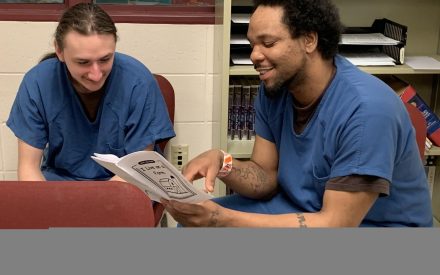Social isolation and loneliness are critical concerns for both physical and mental health. The experience of isolation and loneliness results in a cascade of stress hormones and inflammation in the body and has been associated with increased risk of depression, anxiety, suicide, physical conditions such as heart disease, and even increased risk of premature mortality. Older adult populations, including immigrants, LGBTQ, minorities or victims of elder abuse are at increased greater risk of social isolation. During the COVID-19 pandemic, isolation and loneliness have increased in part due to physical distancing and other necessary public health measures, although many families have exhibited remarkable resilience. The pandemic brought an immediate need for local agencies/organizations and residents to access support resources related to social isolation. In addition, support organizations needed to understand how the pandemic exacerbated social isolation.
In response, Extension led a research project geared at understanding the state-wide emergency response related to social isolation and developed materials for both agencies and individuals to ensure that Wisconsinites have access to existing support resources.
Extension led a statewide assessment to learn how communities responded to social isolation and loneliness during the pandemic. Stakeholders from multiple organizations joined our team during the analysis of the data to provide diverse perspectives and insights on the themes that emerged within the survey responses. The end goal of the assessment was to share out best practices, lessons learned and to connect agencies across the state who are doing similar programming. The results were disseminated with the North Central Region Aging Network, Community Health Coordinators and Aging Unit/Aging and Disability Resource Center Directors, Extension, community partners, and residents.
Extension’s first response to addressing social isolation and loneliness during the COVID-19 pandemic was to develop a customizable resource guide for community organizations and agencies that contained local and state support resources related to social isolation. The localized resource guide aided community agencies in directing residents to opportunities to socialize, caregiver support groups and emergency services for physical and mental health needs. County Educators across the state shared the localized guide with local partners, such as health care providers or county government offices.
In addition to this systems-based support, Extension developed a guide for residents to help individuals and families make decisions around socializing during the pandemic, especially as social spaces are incrementally reopening. The decision guide walks users through the decision-making process by using a worksheet, flowchart or online click through tool. The guide and tools share local, state, and national COVID-19 resources that help users find the information they need and think through and answer questions about the local context, what safety measures they can take, and if there what their personal risk or benefits are of interacting with others in their home or in public spaces. The guide, which was created in English and Spanish, had 1,500 page views in 2020. A preliminary survey (n=23) amongst residents who used the guide indicates that it greatly increased awareness regarding COVID safety measures.
Extension resources and research empowers local agencies and organizations to address negative impacts of social isolation and loneliness on older adults and other high-risk individuals.
The Life Span program is part of Extension’s Human Development & Relationships Institute. Learn more by visiting extension.wisc.edu/family.
Download Article

 The Path to Stable Housing
The Path to Stable Housing Increasing Literacy in Justice-Involved Families
Increasing Literacy in Justice-Involved Families Strengthening and Engaging Local Health Coalitions
Strengthening and Engaging Local Health Coalitions Addressing Economic Inequities by Building Financial Capability
Addressing Economic Inequities by Building Financial Capability


